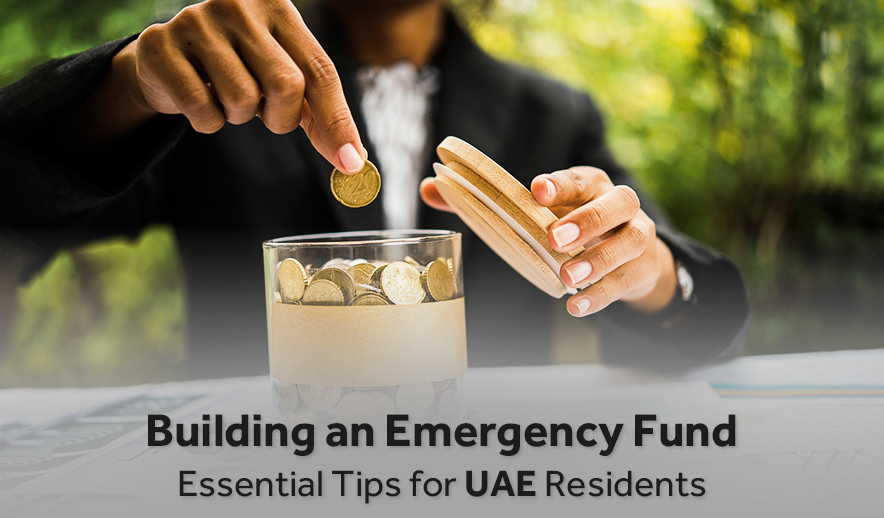
Building an Emergency Fund: Essential Tips for UAE Residents

An emergency fund is a financial safety net designed to cover unexpected expenses or financial emergencies. Whether it’s a sudden job loss, medical expense, or major car repair, having an emergency fund can make these situations less stressful. For residents in the United Arab Emirates (UAE), building an emergency fund is particularly important due to the high cost of living and unpredictable nature of life. Here are some practical tips for building an emergency fund.
- Understand the Importance of an Emergency Fund
The first step in building an emergency fund is understanding its importance. An emergency fund provides financial security by giving you funds to fall back on in case of a financial dilemma. It allows you to handle unexpected expenses without having to rely on credit cards or loans, which can lead to debt.
- Determine How Much You Need
Financial experts typically recommend that your emergency fund should cover three to six months’ worth of living expenses. Calculate your monthly expenses, including rent, utilities, groceries, transportation, and any other recurring costs. Multiply this by the number of months you want to cover to get your target emergency fund amount.
- Set a Monthly Savings Goal
Once you know how much you need in your emergency fund, set a monthly savings goal. This could be a fixed amount or a percentage of your income. Make sure your goal is realistic and achievable based on your current financial situation.
- Open a Separate Savings Account
To avoid the temptation of spending your emergency fund on non-emergency expenses, consider opening a separate savings account. Look for an account with a high interest rate to help your money grow over time.
- Automate Your Savings
One of the easiest ways to build your emergency fund is by automating your savings. Set up an automatic transfer from your checking account to your emergency fund each month. This ensures that you’re consistently adding to your fund.
- Cut Back on Non-Essential Expenses
Look for areas in your budget where you can cut back. This could be dining out less, cancelling unused subscriptions, or shopping less frequently. Any money you save can go directly into your emergency fund.
- Increase Your Income
If possible, look for ways to increase your income. This could be through a side job, freelance work, or selling items you no longer need. The extra income can help you reach your emergency fund goal faster.
- Stay Committed
Building an emergency fund takes time and commitment. Stay focused on your goal and remember the peace of mind that having an emergency fund will bring.
Conclusion
Building an emergency fund is an essential part of financial planning. By understanding its importance, determining how much you need, setting a monthly savings goal, opening a separate savings account, automating your savings, cutting back on non-essential expenses, increasing your income, and staying committed, UAE residents can build a robust emergency fund. Remember, the key to building an emergency fund is consistency and discipline. Happy saving!



